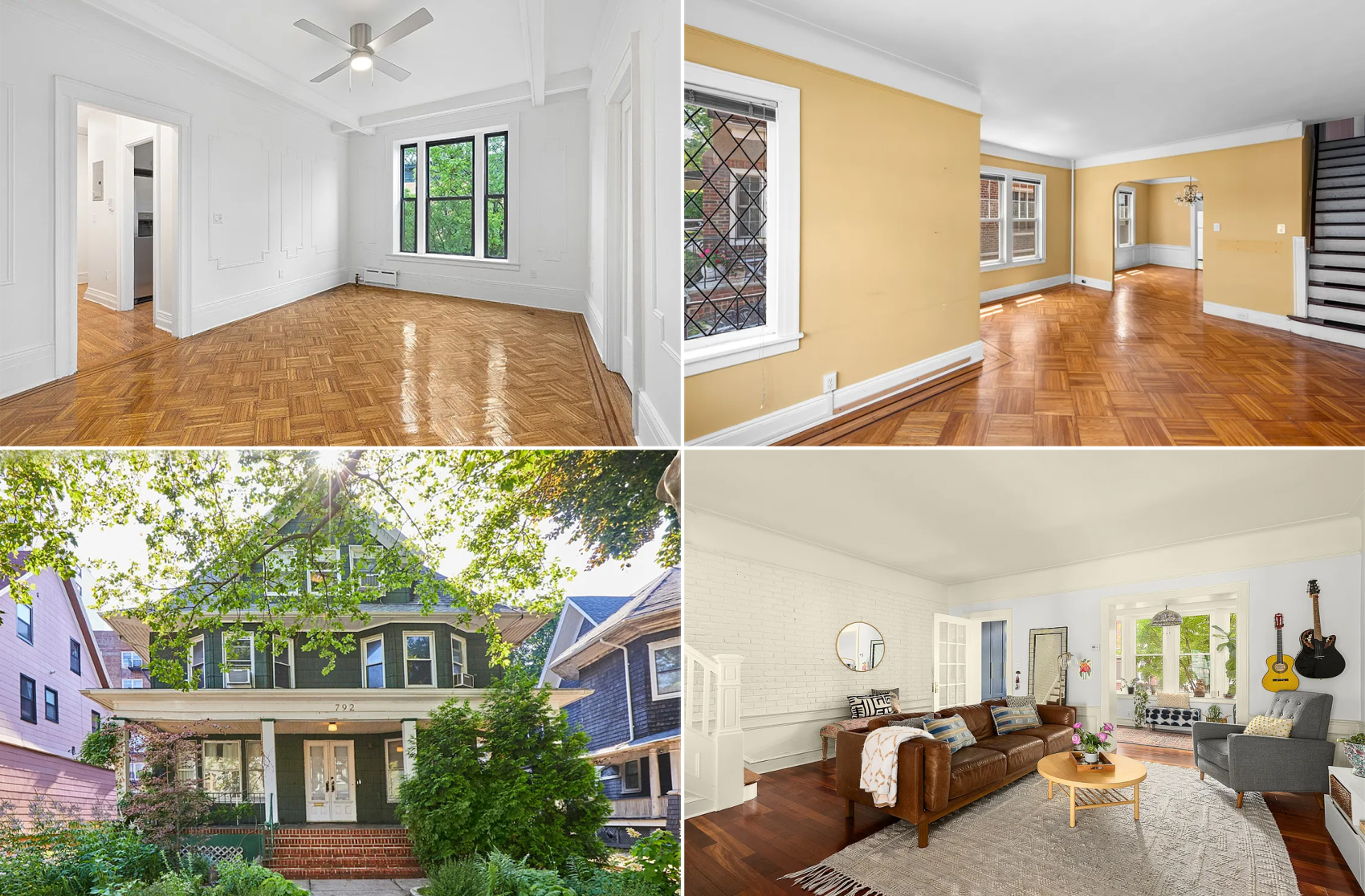Rent Stabilization: Golden Noose or Goose?
The cover story in this weekend’s real estate section of The Times takes a look at one of the most fascinating and contentious aspects of New York City real estate: Rent stabilization. On the one hand, the article profiles some people who say they wouldn’t have been able to afford to live in New York…


The cover story in this weekend’s real estate section of The Times takes a look at one of the most fascinating and contentious aspects of New York City real estate: Rent stabilization. On the one hand, the article profiles some people who say they wouldn’t have been able to afford to live in New York without rent stabilization and, on the other, it documents the frustrations landlords often encounter when trying to take buildings out of the stabilization program. We found this tidbit to be the most intriguing of the article: “[Steven R. Wagner], the lawyer, says big development companies usually figure the cost of buying out rent-stabilized tenants into the overall budget. But they are really just guessing. There is no telling how high a hurdle they will face—both legally and financially. He cited several cases in which the gap between the first offer made by developers and that accepted by tenants had been hundreds of thousands of dollars.” Any readers been on the tenant or landlord side of the aisle in a scenario where deregulation was being attempted?
The Lucky Break of Rent Stabilization [NY Times]
Photo by Listen Missy!





Rob is right. Rent controlled/stabilized is the only thing keeping NYC from becoming completely full of bland obnoxious, yuppies. It’s the last gift given to the city from Albany and it shouldn’t go anywhere.
benson – not really (especially if you want to expand vouchers to the people that SHOULD [but dont] gain under RS)
Mitchell-Lama covered both rental and co-op but I wasnt referring to that exact program anyway – just one in which you grant developers/LL tax breaks and low-cost financing options n exchange for affordable rents for qualified NYers.
FSRG;
I’ll admit that I was taking a guess at it. My thought was that most folks who qualify for rent vouchers also receive other forms of public assistance, so they are already subjected to income verification.
I’m having trouble understanding your point regarding Mitchell-Lama. Aren’t they limited-equity co-ops? How would it work in the case of a rental building?
benson I disagree that rent vouchers would be a bureaucratic savings – analyzing individuals for income verification and then renewing the benefits is a daunting task. For a macro solution, a program like Mitchell-Llama is much more effective and leverages private developers and managers more effectively than a voucher program like section 8.
I understand FSRG’s point about the social stability benefits of RS. However, I would submit to you that the present system does a very poor job of it. Per FSRG’s statement, it works to the benefit of the old-timers, and does nothing for new arrivals.
As for the issue of help to the lower-income levels, I think this issue would best be taken up on demand side: rent vouchers, etc. Going to a voucher system would better ensure that those who are receiving help actually need it (as opposed to the present system). Vouchers require income verification, which the present RS system does not.
I would propose the following solution to the current mess:
-phase out the present system over time via vacancy decontrol.
-encourage owners to extend longer-term leases, via some type of tax incentive. In Tokyo, for instance, a four-year lease is the norm.
-rent vouchers ofr those in the lower income levels.
In addition to ensuring that benefits flow to those who really need them, this system would eliminate the RS bureaucracy, at a time when municipal and state governments are overextended.
mtr, that would work if an entire building is rent stabe, but it’s usually the individual unit that falls under rent stabilization. For your idea to work, which I think is perfectly acceptable, there would have to be some formula established based on rents collected from stabilized units that also factors in how many market rate units exist in the same building.
RS and RC are fine as long as the City is willing to extend the same financial advantages given to the tenant to the landlord – if you are, in the case of RS, only going to allow a 2 or 3 percent annual increase in income then you need to cap total increases in real estate taxes and water and sewer charges to a similar percentage. For buildings with RC tenants would the City be willing to freeze tax increases since they have frozen the income? The idea that the City would freeze their own income is laughable but clearly they have no problem doing that to private citizens.
I don’t understand why landlords have so much of a problem with paying RC tenants to leave. It just comes down to return on investment.
The tenant has something of value, if you want it, pay for it. Personally I think if it costs you $7000 to bribe a tenant to leave, but you can rent thew apt for $200 more a month, that is a good move.
bklynhabitant – willbklyn:
In a perfect world you’d be 1000% correct but things arent perfect, 1st costs arent fixed – and some of those costs are set by the same administrator of the RS rent – such as Water rates and RE taxes…the “deal” you made when you bought might not be the same a few years later.
RS increase vary by an almost arbitrary amount. 4% one year 2% the next – what is this “deal” you speak.
Finally based on your thesis, it should be equally “unfair” to change the RS rules to make them offer MORE protection to tenants (such as the recent change taking all buildings getting J-51s out of ‘luxury decontrol’ eligibility)
Point is while you have a point (owner bought based on RR), it isnt a straight forward as you say – nor is anyone I know of seriously talking about “ending” RS the only debates out there (and none will likely happen) is adjusting its provisions in manners that will have negligible short/medium term effect on a buildings RR (therefore no windfall)